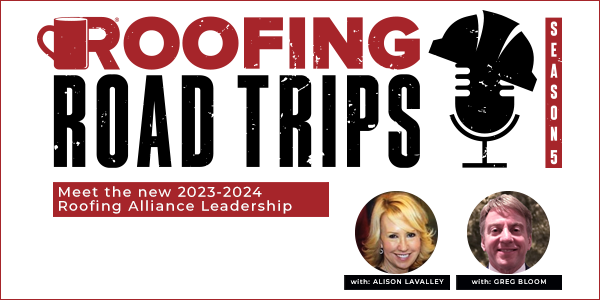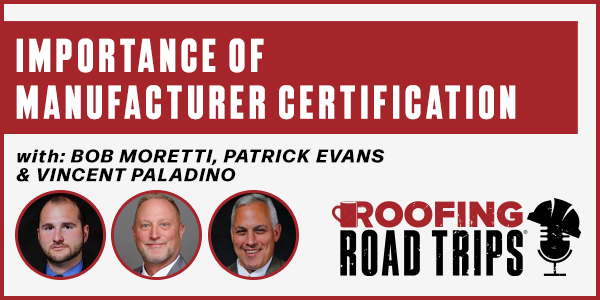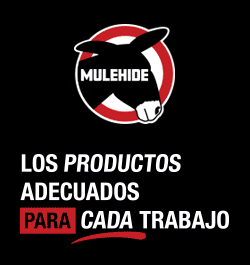Bob Moretti, Patrick Evans and Vincent Paladino - Importance of Manufacturer Certification - PODCAST TRANSCRIPT
June 27, 2025 at 4:57 p.m.Editor's note: The following is the transcript of a live interview with Bob Moretti, Patrick Evans and Vincent Paladino of Tremco. You can read the interview below or listen to the podcast.
Intro: Welcome to Roofing Road Trips, the podcast that takes you on a thrilling journey across the world of roofing. From fascinating interviews with roofing experts to on-the-road adventures, we'll uncover the stories, innovations and challenges that shape the rooftops over our heads. So fasten your seat belts and join us as we embark on this exciting Roofing Road Trip.
Heidi Ellsworth: Hello and welcome to another Roofing Road Trips from RoofersCoffeeShop. My name is Heidi Ellsworth and today we're here with an age-old question, how do you get certified by manufacturers? And what's the process? Why should you get certified? So we went to the experts out there, our friends at Tremco, to ask them all about their certified contractor program and overall in the industry, why is it so important to contractors? So gentlemen, Patrick, Vince, Bob, welcome to the show.
Patrick Evans: Thank you.
Vince Paladino: Thank you.
Bob Moretti: Good morning.
Heidi Ellsworth: Good morning, good morning. This is going to be a great, I've been in roofing for over 30 years and this is always one of the top questions for contractors of how do I get certified? What's the process? Why should I? So I just think this is just such an important ongoing conversation. But let's start out with some introductions. So first of all, Vince, can you introduce yourself, tell us what you do with Tremco?
Vince Paladino: Yes, thanks, Heidi. My name is Vince Paladino. I've been with Tremco, let's see, I'll be starting 28 years in June and I'm vice president of sales for the Eastern division of US and Canada.
Heidi Ellsworth: Wow. Congratulations. 28 years. Woo.
Vince Paladino: Thank you.
Heidi Ellsworth: That is awesome. Patrick, can you introduce yourself and tell us what you do with Tremco?
Patrick Evans: Absolutely. I'm Patrick Evans. I've only been with Tremco for 20 years. That's all I can make it. I'm the vice president of sales for the central and western Divisions of the US and Canada.
Heidi Ellsworth: Awesome. Only 20 years? Come on. I know. I love it. And Bob, can you introduce yourself?
Bob Moretti: Yeah, my name is Bob Moretti as Director of Sales Ops and Training, I'm responsible for our sales associate training program as well as our just call it everyday training program, which includes training contractors, which is what we're talking about today. I am the baby of the group, apparently. 13 years for me, that unlucky number will come to a 14 here in August.
Heidi Ellsworth: Well, I tell you what, Bob 13 has always been a very lucky number for me. So it sounds like it is pretty lucky for you this year too.
Bob Moretti: You shared that with me. Yeah, you're making me feel better. There's a reason the floors at the hotel don't go to 13, right?
Heidi Ellsworth: Yeah. Well, I tell you what, today's St. Patrick's Day, so I just say 13 is a lucky number. We just go with that. Okay, gentlemen, let's start out with that question that I started this all out for this podcast. What does it mean to be certified by a manufacturer overall? Let's start out with the picture. Why is that important for a contractor's business? And then let's bring it back down really to Tremco and how important that is. So Vince, let's start with you. Why should contractors be even be getting certified?
Vince Paladino: Well, every manufacturer has a process that they want the contractor to adhere to based on a standard of quality. So every manufacturer has their standard of quality and based on that standard of quality, the contractor needs to understand what is the expectation? Will there be monitoring? Are they requiring to do that or is a third party doing that? So a lot of those issues related to ultimately at the end, what we want is a quality product for the customer. So the contractor should be working in lockstep with the manufacturer that the customer gets the end result that he expects.
Heidi Ellsworth: Okay. Patrick, can you add to that just why it's so important with everything you're seeing in your territory on why contractors should take the time to really build that relationship with the manufacturer and then work through the certifications, how does it help their business?
Patrick Evans: So ultimately, at the end of the day, we are trying to deliver roofing peace of mind to our customers, the end users. We're trying to give them a leak free building and our roofing contractor partners are truly our partners in delivering that peace of mind. And so everyone has their own process for doing it. Some of it's based on your financial credibility, some of it's based on what work you've done in the past. But at Tremco we have a process where we review financials and then we review a body of a contractor's work to make sure that what you do matches what we do and then we're going to provide training and skill assessment with our products to help you meet our customer's needs because that's really all we're trying to do. So we're creating a partnership with you contractors to deliver the best in class roofing results to our customers.
Heidi Ellsworth: I think as you're talking about that too, that is so important because for a contractor's business, they want to also be backed by a really highly reputable manufacturer. And so as you're looking at that and you got to put yourself as a contractor, they had to put themselves out there, financials looking at their body of work, but also contractors should be taking the time to really understand culturally the fit with the manufacturer too. Don't you think?
Patrick Evans: Yeah, our objectives really need to be aligned that we're not trying to speed through and cut corners. It's all about doing everything the best possible way and of course, effectively and efficiently so that everyone can make money and be able to win from the process. But if we don't, at the end of the day, if we don't deliver a quality leak-free environment for a customer, we all lose.
Heidi Ellsworth: Vince, you were going to say something too.
Vince Paladino: No, no, I was just going to, Patrick hit it right there at the end. I mean, essentially at the end of the day, it's about a partnership. It really is. And to your point, Heidi, culturally what we do and how we observe and what we're doing for the customer is part of that process that I was talking about. And understanding that and a lot of the contractors when they first start, if we don't do a good job of explaining, look, this is our customer and meaning both of ours on this particular situation and there's going to be an expectation level that we, because most of the time our sales guys are bringing this opportunity to the contractor, unlike a lot of other manufacturers that rely on them to sell the jobs. I'm going to say Patrick and I embellishing? 85, 90% of the time or more, our team is bringing the opportunity to the contractors that become part of our team.
Patrick Evans: Absolutely.
Vince Paladino: And that's a different approach. They're used to running and controlling because they brought the customer where in this case they are participating in something that we brought to them. And so it's a different cultural mindset and some can adapt and do it well and others you try it and it doesn't quite work and they don't want to play. So that's what that's trying to vet. That's what we're looking for in true partners.
Heidi Ellsworth: And that's really interesting. And I think if we take it up to that higher level, again, that says a lot on the research that the contractor should do when really deciding who they want to be certified with as a manufacturer. Because first of all, I mean that's pretty awesome that you're bringing these jobs to the contractors, but it is a different way of going. And so contractors need to do a little bit of that research ahead of time to make sure that they're really a good fit both directions as they're going through. Bob, what do you see as you are training and working with some of the contractors on who are trying to make these decisions on really who to be certified with and who to build these relationships with?
Bob Moretti: Yeah, I think to just add to what Vincent and Patrick said and hopefully answer your question Heidi, it's all about that local team. So generally speaking, the process starts by contractors reaching out to someone on our local team that would be a Tremco field advisor, who are our sales reps, which we have over 160 across North America as of today. And they're going to say, "Hey, based on the work, I see you guys putting up market. Let's just grab restoration for a minute. I'm interested in bidding on this type of work. How do I start? How do I get involved?" So on my side of it, from a training perspective and also as the person who used to run on our technical department, what I see as being really vital in that partnership and I'll just grab a couple things. It is that technical support at the local level.
So if there's ever an issue at a job site or some kind of challenge, the contractor is not going to have to wait for somebody to come fly into the job site. Our headquarters is in Cleveland. It's not like all of our technical people are sitting in Cleveland and we dispatch them. We have our reps in local markets. Most of them have technical advisors or what we call roof advisors in market. We have our 20 plus contractor support specialists that are scattered all throughout North America. So locally, if there's a challenge on a job site, that great partnership is providing service quickly because, to what Patrick and Vince were talking about, it's all about servicing the owner. That's what that partnership is there to do. So being able to act quickly, solve challenges.
Another thing that usually doesn't get talked about as probably often as it should, is we do have our own laboratory. So when we're talking about maybe product complaints or PCAs as we call them, let's say contractors installing material, for whatever reason, it's not curing properly. Having someone locally on site who could grab the batch number, call the plant and or the lab, pull the retains, put a little bit of a sample in a Ziploc bag, overnight to our own lab in Cleveland to do the analytics on it, it provides us with a tremendous support system.
Heidi Ellsworth: Yeah, I mean those are the kind of things like what we were talking about as you're researching, understanding the kind of support that the manufacturer is going to give to you is, I mean, you don't hear about that too often. Patrick, it looked like you were going to share something on that also.
Patrick Evans: Well, the interesting part about roofing is like all construction, it's complicated and messy and there's unintended consequences. There's undiscovered opponents. When you tear off an existing roof or when you're diving into construction, there's a lot of things that can go wrong. It's a very high risk business and we know that for us and for the contractors, there's a lot at risk every day we go to work and being partners means that not only will we support you, but we expect you to support us for whatever reason things can happen and we really need the mutual support of each other to make sure that we mitigate any expensive or challenging issues. And then at the end of the day, we can figure out a path forward to getting things done. I always tell customers when we start a project, "Look, we're going to make this as smooth and seamless as possible, but this is construction and it will be messy and something will happen that we don't know about."
Heidi Ellsworth: It's just how it is, but it's how you handle it and the partnership.
Patrick Evans: Yeah.
Heidi Ellsworth: Okay. So as a contractor, they're out there, I think there's many contractors who are probably thinking, "Okay, what do I need to do to really, when we do start this relationship and start looking at qualifications and looking at different things, what do we need? How should we have our house cleaned?" I guess is what I'm trying to kind of put out there. So I know one of the things that we're looking out there right now in the industry is the NRCA Pro certification. There is a lot of power behind having pro-certified installers on a construction team in a roofing company. What are some of the and Vince, we'll go back to you, what are some of the other things that contractors can actually be doing with their company to make them even more ready to become a partner and a certified contractor with you?
Vince Paladino: Well, as Patrick kind of alluded to early on, we look at history. So we're interested in what projects have you taken on in the past? Bonding capacity is a big one that we run into a lot where they don't quite have the bonding capacity. There's some issues related to that. So can they handle a sizable job or is this the first time they've ever gone after a multimillion dollar contract? So that's part of that vetting process that we try to go through and we look at the jobs, we look at their financial history, have they defaulted on vendors before? I mean, that's a big one. So you don't want to have that little black market against your name.
And then the bonding capacity is one that a lot of times we think they're really good contractors and then realize they don't have enough bonding to handle the size of project that we're going to be working it with. So that's probably the biggest one. Make sure they have the bonding, make sure their people are OSHA trained and safety is a key. There's a lot of them, we'll go out with a safety plan and they look at us like we got three eyes. So that's something that is very important to us. I mean, we want our people coming home every night safely and we would hope they would want the same. So safety is a big one, past history, financial capabilities and bonding capacity are probably the four that I'd look at.
Patrick Evans: I would add to that, just do you have appropriate field leadership? What are your crew sizes? What do they look like? How are they handled? A good foreman can make up for a lot of problems. Some good superintendents and foremen really, really set the stage for success with a contractor.
Vince Paladino: And communication of that to us, to the team. That's what we mean by partnership, being able to communicate the issues and try to work it out. Try to work it out before it elevates. That's the key.
Heidi Ellsworth: That's so true. Bob, you were going to say something along with that too?
Bob Moretti: Yeah, just to add one more. So of course we have contractors approaching us and again, we'll pick on restoration. So if you're interested in partnering with us, like a metal roof restoration, if you don't have the right equipment or the right pumps to meet the specifications of that material, that's going to be a pretty tough conversation early on because back to Vince's point, we need to make sure the people that are there to bid at the pre-bids are qualified and go through that list.
Heidi Ellsworth: Yeah, equipment, so true. Thinking about what you're going to be doing and where you're going. Okay, so once the contractor has connected with their local team, they've gone through the vetting and everything, they become a certified contractor. I think there's a lot of people out there who'd be interested in then what happens? What are those next steps? So Bob, once they're approved, what is the process to bring a contractor in as a fully certified Tremco contractor?
Bob Moretti: No, great question. So we'll assume for a minute that the new contractor is the recognized low bidder on a Tremco project with our rep or our sales team. A very wise person who had this post before me, his methodology to training was tell them what you're going to tell them, tell them and then tell them what you told them. So taking that methodology, we can have our local CSS team go to the contractor shop and say, "Hey, before this project kicks off, I'm here to go through these materials with you. So here's the specification, here are the conditions of the project." We can build mock ups. We can basically get them trained before they ever step on the roof at their shop.Or if they're interested in a more formalized program, like a two or three day program, whether it's in roofing or in our pure air business, they can come to Cleveland where my team will host them at our training center in Beachwood. We do plant tours, the stuff that we do locally.
So they get trained by those CSS representatives and/or somebody on the sales reps team. Now the project's started and back to Vince's point, this is something I feel is truly unique about Tremco and the majority of our sales force have technical inspectors that work on their team. These aren't sales professionals who have time away from selling that go do inspections. They are dedicated representatives for technical, which is important in a lot of different specifications. So that person is there and it's a little bit more involved than a registered roof observer, an RRO is going to observe and report, observe and report. It's that, but just take it to the other level because we're going to carry the warranty for 20, 25, 30 years.
So if we see the ribbon patterns on the insulation, let's say on a tear off and replace not at 12 inches on center, that person not only is going to document that, but they're going to say something and they're going to say, "Hey, trusted partner, we need to make this adjustment now before it ends up being costly later." So there's a whole QC process involved during the project and then to the debrief, if you will, as the project is nearing completion and the punch list is put together, we send out separate individuals to do our finals. So these are employees of Tremco or WTI that are different from the inspectors during the job. That's really important. So now the punch list is put together, punch list is completed, inspector comes out, looks at everything and says, "Yep, we're good to issue this warranty for again, 20, 25, 30 years, maybe even longer."
So I think really it's that process and having contractors who take pride in their work and come to us and say, "Hey, looking at these reports, I see we missed a beat here, missed the beat there." How do we improve? Is it more training kind of to your point, do we need to run through this again? Or something that I used to see a lot, maybe a contractor has their primary crew trained, but for whatever reason that day, crew members were ill, couldn't make it to the job, they substituted in other members. Now those members need to be trained. So it's this constant game of checkers, I feel like. And even once you do get everybody trained, of course there's improvements, there's changes in materials. The training is constant.
Patrick Evans: But Bob, I think the big win is that we catch it early because we're inspecting and we don't allow the contractor to finish a job wrong and then expect them to go back and have to clean it all up. I mean, if we've got inspection, the point of it is as a partnership, we're going to stop that now. So nobody is wasting time or effort or money, we're going to fix it and do it right so that at the end we can walk away feeling confident and comfortable that we've taken care of the customer.
Heidi Ellsworth: That's excellent. I mean, that's peace of mind for the contractor and also reduction of risk also across the board. So, okay, I love this. And then that's ongoing. So this isn't a one and done. Bob, every new project that comes up, you are working with the contractors to make sure that everybody's on the same page with that specific job. Do you see contractors coming in yearly for trainings and to really make sure that they're staying on top of their game?
Bob Moretti: So post-covid, we don't see as many coming to Cleveland as they did before covid, but what we're seeing instead is more engagement from our contractor support specialists. So these are the 20-plus people we have in markets throughout North America whose primary job as a salary employee of the training department is to go there and again, make sure before those crews get on site that they're comfortable. And now fast-forward to when they're on the site. You have the inspector guy or Tremco and then you have the CSS person working hand in hand as kind of that hand in glove kind of approach, more than, to Patrick's point, you're not doing it correctly. How is it supposed to be done? Let's make the adjustment now, let's fix it now. With liquids, obviously coverage rates is a big thing. So working together, people have mill gauges, they're counting buckets, they're spot checking coverage rates, that kind of stuff.
So I don't know. I'm thinking if I was in the audience right now, you might be thinking how in the world does Tremco have so much control over that project? Because we're talking about a lot of oversight and a lot of people. I think the simple answer is that because we don't sell through distribution, we sell direct. That enables us to work that much closer with the contractor. So we know when those materials went out, we know when the job is starting. There's just a lot more of a team approach to it, I guess I would say.
Heidi Ellsworth: Yeah and that would be of great value. Vince, as contractors are looking at this and looking at the value, upfront, you have why and then how. But now once you're in there, that value of being a certified contractor, what have you seen with your contractors out in the field? What value does it continue to bring to their businesses?
Vince Paladino: Well, I mean, we've had longstanding relationships with contractors that were smaller and they've become larger and they've grown as we've grown because they understood that it was a true partnership. And there are some, look, there are some and over the years I've had some great relationships and I have had some tenuous relationships and it had to do with the owner's attitude on what he thought he needed to be in control with. And at the end of the day, this always works if we're communicating. I keep saying it, but it's a fact. And what ends up happening is as soon as things get tense, to Patrick's point, it is construction. Things will go bad. It's just normal. But it's how we react to those issues and how we deal with it in front of the customer and how we take care of it. At the end of the day, I think that's where we're a little different. We will take care of it.
Now, sometimes it's a hard conversation because the coverage rate wasn't done right or they did it when it was too wet or the one day that we weren't there, they did something that made the whole thing kind of start to look bad. And now we're like, "Wait minute," and then we're going to dig through the history and we're going to look at it and we're going to have that hard conversation. Our best contractors that continue to grow and understand the partnership, it's like any relationship. Sometimes you just got to face the bad stuff head on and we both win in the end. And that's what's happened. It's made some small companies some very large companies because of those relationships with the local team, building that relationship with a rep, understanding the rep's team, understanding their capabilities, the service part of the business, the WTI side of our business, understanding the players there, what the expectation is and then just communicating. And as we communicate, then we continue to sell more, they continue to apply more. Everybody wins.
Heidi Ellsworth: Patrick, to continue that, you just had an awesome awards ceremony during IRE for your contractors and folks out there. So you get a lot of like-minded contractors seeing each other, understanding what's going on. How does that continue to that brother and sisterhood of Tremco certified contractors, how does that look?
Patrick Evans: Well, the amazing thing is being a certified Tremco contractor, you're joining an exclusive club. And we're not trying to keep people out, but we're trying to get the good people in. And the beauty of you being a contractor partner is that you now have access to projects that nobody else is going to get access to other than that small group. So rather than bidding on public projects where there's 15 or 20 contractors bidding heaven knows what scope of work, we're setting the table with a solid specification and instead of drawings and details and every contractor that we invite has been trained the same way, they're going to do the job the same.
So you're bidding against people who are bidding the same project, if you know what I mean. And so you have an absolutely fair chance and it's going to be three or four or five contractors in most typical cases in private work, obviously we bid some public work, but you're coming as a select member of a team and you have a better than usual chance to be able to get a nice project that you know can make a little bit of money on and that you can perform well. And it will go in your book as there's another quality project from X contractor. That's a huge win. And so as a team, we like to celebrate our contractors that are our partners. And at IRE, when we had that celebration, it was exciting because each of them look at each other and they're like, "Yeah, those guys are awesome. They're in California. And look at this group out in Pennsylvania and these guys in Chicago, we're all part of the same team." It's kind of fun.
Heidi Ellsworth: Yeah, that is. That's so cool. And I've seen that camaraderie and I've also seen how the contractors, not only, I know you said 85 to 90% is brought by Tremco, but I also know and I've worked with contractors out there who are bringing that back because they believe in the Tremco products so much and they are also using it and bringing projects to you. So it really becomes a win-win over the overall.
Patrick Evans: Yeah.
Heidi Ellsworth: Okay. So let's go with Bob, I want to go to you. Walk us through how a contractor can become certified. What is the actual, let's get a little tactical here, what's the process?
Bob Moretti: Yeah, so again, can't make this up. Contractor called me this morning, she's been calling me for a few months now because they've completed some work for us in certain markets, small projects, but they're looking to get on the board, so to speak, for some larger projects. So how does that whole thing start? To me, it starts with intent. So if you go to our website, Tremcoroofing.com, you're a contractor listing right now, you can see all the Tremco field advisors or sales reps in your area. And just to distinguish, we do have Tremco, commercial sealants and waterproofing that is a separate division of Tremco, separate contractors, tremcoroofing.com to find local representatives in your area. So after meeting with those representatives and to Vince's point, here's my portfolio work, here's what we're capable of, here are the qualifications we need. Recent spec you guys put out, we feel like we meet these qualifications.
Typically, our reps are going to gather as a local team to review that. And if they feel like it could be a great partnership, they're going to reach out to their regional manager and then the paperwork process is going to start. And then once that person is technically signed up and on board, that's when we'll start talking about training. And the training conversation's going to be dictated by, "Hey, we're bidding on this project right now. Here's that specification," versus, "Here's the work we kind of want to do in the future." Because I think back to the alignment piece, we do have contractors who are only interested in doing certain liquids or contractors that only want to do tear off. Maybe they don't want to do restoration for whatever reason. So it's just making sure everyone's on the same page with the type of work they want to go after versus the work they don't want to go after.
And I think too, just to sprinkle some science and data on top of this and also kind of a cool fact about how we go to market. So we are partnered with a company called Simplar who through Arizona State University, we survey every single owner after every project that we do. So I pulled up the data here while we were having that last conversation. So in the last few years, we have over 220 million total square feet of surveys that we've handed out. And right now we're running at a 94% rate of customers who would hire that same applicator again. So to me, why that's important and Vince and Patrick already said it, in a partnership, we are viewed as one. The Tremco rep, like Vince said, creates the project, brings it to fruition, then brings the contractors to the table. So if there's an issue with a contractor at a site, that owner is going to go to their Tremco rep and say, "What the heck is going on?" And I think these numbers speak for themselves. That's a heck of a great job by all of our trusted partners at 94%.
Heidi Ellsworth: Yeah. Wow. That's excellent. Patrick, building those relationships. Not every contractor is ready right now to create this partnership to become a certified contractor. We already talked about what they should do, but I do want to get your opinion on don't give up. Right?
Patrick Evans: Yeah, don't give up. There are in so many markets that I'm aware of, contractors who at one time came to Tremco, came to the local rep and for whatever reason, they weren't really delivering at the level that we wanted or they weren't quite trained up or we weren't really ready to add another contractor to the mix in a market. But I've seen those over and over again where they stay persistent and they're like, "I want to be a part of your team." And they come back and in future years, they are able to demonstrate to us that, "Hey, here's where we are now. We were a different company five years ago. Here's what we can do today. Will you please talk to us, review our work, come and sit down with us and talk about what we can do?" And we are constantly adding contractors to our pool of really qualified contractors. It's not like a really small members-only kind of a thing. We're growing our business. We've expanded our capacity significantly and we need more contractor partners, but we need good contractor partners, not just anybody.
Heidi Ellsworth: I love it. Vince, bring us home. Last thoughts.
Vince Paladino: Well, I would say to Patrick's point, there are some that maybe tried too early and weren't ready and it kind of went sideways. And another way to try to start that again is I know at times we'll use contractors for smaller jobs, even though they're not certified to do the big stuff. They could start in the patch and repair realm with us and help us solve some problems, figure out we got a persistent leak on something where we're building the relationship with the client, we're figuring out what's going on. It may not, a lot of times it's not our roof. We're trying to, "Why am I going to buy from Tremco?" The customer doesn't know us. So that's a good opportunity to work with the local rep and kind of see how you work together. Can you dance together on the small stuff before you go somewhere big?
And there's a lot of that that goes on where we either give them a second chance on a small patch and repair job or something not of the scale that most people want. They want the multi-million dollar deals where they're staging and they're there for the summer. Well, that comes with a lot of trust. So I think it's really start small. And sometimes if you went sideways, "Hey, can we sit down and talk and maybe we can try this again?" I think you never say never. And as long as we're continuing to talk and work together, I think you can get their chance.
Heidi Ellsworth: I love it. I love it. That is a great way to end this podcast. Gentlemen, thank you so much. Thank you for sharing your knowledge, your encouragement to contractors out there. And I would say to the contractors out there, whichever manufacturer you are looking at partnering with, this information from this podcast today will help you build those relationships with them. And it is very important for your business to find those right connections and those right partnerships for success. So again, Patrick, Vince, Bob, thank you so much for your time today.
Patrick Evans: Thank you, Heidi. Appreciate it.
Vince Paladino: Thank you.
Bob Moretti: Thank you.
Vince Paladino: Have a good one.
Patrick Evans: Bye.
Heidi Ellsworth: Thank you. And thank you all for listening. Please check out the Tremco and WTI directories on RoofersCoffeeShop. You can find all kinds of information, some amazing projects and information on how you can get a hold of these gentlemen and your local reps to become a certified contractor. Also, please check out all of our podcasts under the RLW navigation. Be sure to subscribe and set those notifications so you don't miss a single episode. We'll be seeing you next time on Roofing Road Trips.
Outro: If you've enjoyed the ride, don't forget to hit that subscribe button and join us on every roofing adventure. Make sure to visit rooferscoffeeshop.com to learn more. Thanks for tuning in and we'll catch you on the next Roofing Road Trip.
Recommended For You

Why You Should Hire a Tech-smart Contractor - PODCAST TRANSCRIPT
Read More ...
Corynn Sheridan & Ted Deaton - How contractors are withstanding coastal challenges - PODCAST TRANSCRIPTION
Read More ...
Alison LaValley and Greg Bloom - Meet the new 2023-2024 Roofing Alliance Leadership - PODCAST TRANSCRIPTION
Read More ...



















Comments
Leave a Reply
Have an account? Login to leave a comment!
Sign In